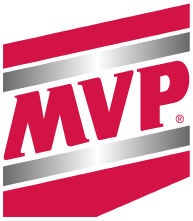Equine Protozoal Myeloencephalitis (EPM) is a serious neurological/muscle disease that can be difficult to diagnose because its signs often mimic other health problems in the horse and can range from mild to severe.
EPM is caused by protozoal organisms known as sarcocystis neurona and neospora hughesi that have the ability to infect a horse’s central nervous system. It is estimated that 50-80% of horses in the United States may have been exposed to the organism that causes EPM. EPM is spread by the definitive host (opossums). An opossum obtains the organism when ingesting the infected muscles from a carrier (intermediate hosts) such as cats, skunks, raccoons, armadillos, and sea otters. The infective stage of the organism (sporocysts) is passed in the opossum’s feces. A horse comes in contact with the infective sporocysts while grazing or by ingesting contaminated feed or water and will not get infected from an intermediate host.
Signs of EPM can be slow or sudden but can cause serious damage and lasting neurological damage when left undetected or untreated. Lesions, inflammation and pressure may develop in the brain, brain stem or spinal cord.
Common Symptoms:
Diagnosis is often done through ruling out other neurological diseases and performing a blood and/or cerebrospinal fluid analysis. Accurate diagnosis of EPM is challenging as there may be false positives and negatives. Early, accurate diagnosis is key and treatment should follow immediately after.
Recognized Treatment of EPM
Treatment typically involves one of the following FDA-approved medications on the market: Marquis® (Bayer), Protazil® (Inter-Vet/Merck), or ReBalance® (PRN Pharmaceutical) per your veterinarian’s recommendation. The FDA also allows for compounding of some these actives to treat at a lesser cost (approx. $250-$300) compared to the costs pioneer products (approx. $800-$1000). Horses that recover can still encounter temporary or permanent deficits. It is estimated that up to 30% of horses treated may experience relapse, likely due to the lack of immune support during and post treatment.
Ingredients that may lend Neurologic Health/Muscle Support
Veterinarians often suggest supplementing with Vitamin E to help boost natural immune response. Recent studies at the University of California, Davis, indicate Natural Vitamin E’s ability to penetrate the blood brain barrier, helping to minimize oxidative stress on the brain when neurological conditions are present. Research also indicates Natural E to be 2 - 21⁄2 times more bioavailable than synthetic formulas.
Antioxidants may also be beneficial in promoting the body's natural resistance to pathogens by helping remove damaging free radicals (tissue toxins). B Vitamins may lend support normal neurological (brain/nerve) function. Additionally certain herbs may also be beneficial in reducing oxidative stress helping to protect body cells and tissue.

